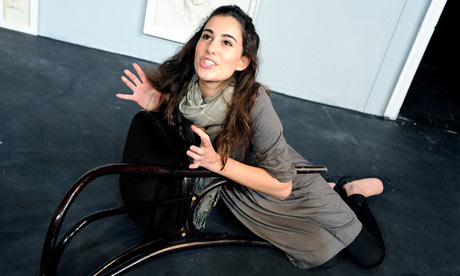
We do not know the women's names, but their voices are quite distinct. All are pregnant. But while the first woman awaits the birth of her baby with a moon-like serenity, the other two are not so lucky. One, whose previous pregnancies have failed to go to term, is experiencing a heartbreaking late miscarriage; the other is a young student whose accidental pregnancy will end in her child being put up for adoption.
Sylvia Plath's only play was never intended for the stage, being broadcast instead on BBC radio in August 1962. Less than six months later, Plath killed herself, but not before the burst of astonishing creative energy that produced her extraordinary, terrifying Ariel poems.
Anyone who knows Plath's poetry will see the connection between Three Women and Plath's subsequent poems, particularly in the way she talks about the agony of childbirth, the rush of love for this tiny alien being, and both the wonder and wounded rawness of motherhood. It is a beautiful piece, full of startling imagery that draws you in through the sheer intensity of its femaleness, and because it so precisely articulates the emotions that are often thought but seldom voiced by women - certainly not in the early 1960s - about men, motherhood and our relationship to our bodies.
It's been 20 years since there has been an attempt at a professional stage version and - in a theatre world that happily accepts the poetic offerings of Sarah Kane and Debbie Tucker Green, or the staged possibilities of The Waves, one of Plath's own inspirations for the piece, I see no reason why it shouldn't be brought to life. Sadly, it doesn't breathe here, in a production by Robert Shaw that is clearly a labour of love, but which never finds a way to give the internal a physical reality. Plath's poetry, like most babies, is more robust than it appears - and won't break if treated with a little less reverence and considerably more grit.
Instead, what we are offered is tinkling piano music, mournful mood lighting, an innocuous pale setting, as well as three perfectly good but indisputably ladylike performances that capture none of the wounded redness of Plath's poetry, and do her the disservice of making her sound bleached and somewhat prissy. It's a pity. What might have been a wonder ends up a mere curiosity.

